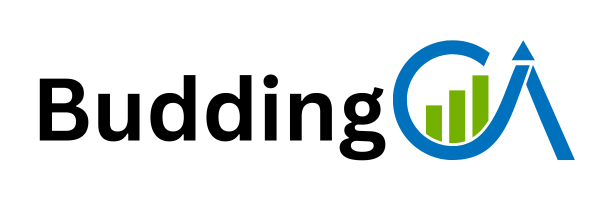Financial Planning & Analysis (FP&A) is one of the most important functions in the finance world today. Companies rely heavily on FP&A professionals to forecast, budget, and provide critical insights that help senior management make strategic decisions. If you are aiming for a career in FP&A, cracking the interview is the first big step.
Preparing well for an FP&A interview can make all the difference between getting hired and missing out. This article will guide you through the essential steps to prepare effectively, making the process less daunting and more manageable.
1. Understand the Role and Research the Company Thoroughly
Before you even start brushing up on financial concepts or practising questions, invest time in understanding the company and the role you are applying for.
- Know the Company Inside Out: Visit their official website. Read their annual reports and recent news articles. Understand their business model, their products or services, and how they generate revenue. For example, in some businesses, subscription revenue is crucial, while in others, it may be transaction-based.
- Familiarise Yourself with Key Financial Ratios: Every company has certain financial ratios that are important to track its health, like profit margins, return on equity, or debt-to-equity ratio. Try to understand what these numbers tell about the company.
- Industry Research: FP&A does not happen in a vacuum. It is important to know the industry landscape. Are there any emerging trends? What challenges or opportunities does the company face? For example, if you are interviewing with a manufacturing company, learn about supply chain disruptions or raw material price fluctuations that affect costs.
- Useful Resources: Use websites like Screener, Moneycontrol, National Stock Exchange of India (NSE), Trendlyne, Economic Times, and Business Line for up-to-date company and industry information.
Taking the time to research will also help you prepare insightful questions to ask during your interview, which always leaves a positive impression.
2. Brush Up on FP&A Fundamentals
FP&A interviews usually test your core finance knowledge. So, ensure your basics are strong.
- Financial Statements: Make sure you can confidently explain the three primary financial statements:
- Income Statement (Profit & Loss Account): Shows company revenues and expenses.
- Balance Sheet: Snapshot of assets, liabilities, and shareholders’ equity at a point in time.
- Cash Flow Statement: Tracks cash inflows and outflows from operations, investing, and financing.
- Financial Modelling: Many FP&A roles require you to build or interpret financial models. Practice building simple models in Excel. Familiarise yourself with Excel functions and formulas like VLOOKUP, INDEX-MATCH, IF statements, and pivot tables. Learn to create dynamic models that can handle assumptions and scenarios.
- Ratio and Variance Analysis: Be comfortable calculating and interpreting financial ratios like liquidity ratios, efficiency ratios, profitability ratios, and leverage ratios. Also, practise variance analysis, which compares actual results with budgets or forecasts to explain deviations.
- Trend Analysis: Understand how to analyse trends over time to identify patterns or anomalies that may impact forecasts.
- Stay Updated: Familiarise yourself with recent changes in accounting standards such as Ind AS or IFRS amendments, and know how these affect financial statements.
3. Practice Common Interview Questions and Case Studies
Interviews will often test both your technical knowledge and behavioural skills. Here’s how you can prepare:
Technical Questions
Prepare answers for typical FP&A questions, such as:
- Explain working capital in simple terms: For example, how would you explain working capital to a 15-year-old without using jargon?
- What is zero-based budgeting? Know its purpose, advantages, and how it differs from traditional budgeting.
- Impact of lease accounting changes: Be ready to explain how the new lease accounting standards affect the Balance Sheet, Profit & Loss, and Cash Flow Statement.
Behavioural Questions
FP&A roles require teamwork, problem-solving, and effective communication. Use the STAR method to prepare behavioural answers:
- Situation: Describe the context or challenge.
- Task: Explain what you had to achieve.
- Action: Outline what you did.
- Result: Share the outcome.
Example behavioural questions could be:
- Tell me about a time you identified a financial risk and how you handled it.
- Describe a situation where you worked with cross-functional teams to complete a project.
Case Studies and Technical Assessments
Many companies include case studies or assessments in their interview process. These could involve:
- Building a simple financial model based on given data.
- Conducting variance analysis and explaining the results
- Solving a business scenario, such as forecasting sales for a new product or analysing cost-saving opportunities.
Practice such exercises beforehand to build confidence.
4. Improve Your Excel and Data Analysis Skills
Excel proficiency is essential in FP&A. You will likely be tested on your ability to manipulate data and build models quickly and accurately.
- Focus on functions such as SUMIFS, COUNTIFS, INDEX, MATCH, OFFSET, and data validation.
- Learn to use pivot tables for summarising large datasets.
- Practice creating dynamic dashboards with charts and slicers to present data clearly.
- Understand how to use Excel’s scenario manager or data tables for sensitivity analysis.
Additionally, knowledge of business intelligence tools like Power BI or Tableau can be a bonus, so if you have experience with these, be ready to discuss them.
5. Stay Current on Economic Trends and Regulatory Changes
FP&A professionals must understand the bigger economic picture since it influences forecasts and budgets.
- Keep an eye on macroeconomic indicators such as GDP growth rates, inflation, interest rates, and currency fluctuations.
- Stay informed about tax laws, government policies, and accounting regulations that affect financial planning.
- Follow news portals like Economic Times, Business Standard, or financial channels.
Showing awareness of current events and how they could impact the business demonstrates your preparedness and seriousness about the role.
6. Prepare Your Personal Pitch and Show Enthusiasm
Interviewers look beyond technical skills. They want to see your passion for FP&A and the company.
- Be ready to answer “Why FP&A?” and “Why this company?” questions with honest and thoughtful responses.
- Share what excites you about financial planning and analysis.
- Highlight any relevant experiences, projects, or internships.
- Show eagerness to learn and grow within the organisation.
7. Master the General Interview Etiquette
- Dress professionally: Even for virtual interviews, dressing smartly helps build the right mindset.
- Be punctual: Arrive 10–15 minutes early or log in a few minutes before the scheduled time.
- Check your equipment: For online interviews, test your camera, microphone, and internet connection.
- Engage actively: Listen carefully, answer clearly, and maintain good eye contact (or camera focus).
- Ask questions: Prepare thoughtful questions about the team, the company’s FP&A processes, or growth opportunities.
- Follow-up: Send a thank-you email reiterating your interest and appreciation for the opportunity.
8. Take Mock Interviews to Boost Confidence
Practice makes perfect. Arrange mock interviews with friends, mentors, or career coaches.
- Simulate real interview conditions.
- Get feedback on your answers, body language, and communication style.
- Use the feedback to improve and fine-tune your responses.
Conclusion
Preparing for an FP&A interview is a journey that requires time, dedication, and strategy. You need to balance technical skills, company knowledge, industry awareness, and personal communication to make a strong impression.
Start early by researching the company and industry, brushing up on core financial concepts, and practising common interview questions and case studies. Polish your Excel and analytical skills, stay updated on economic and regulatory changes, and work on your personal pitch. Don’t forget the basics of professional behaviour and follow-up etiquette.
If you want to accelerate your preparation, consider enrolling in a specialised FP&A masterclass that covers everything from fundamentals to advanced financial modelling. This will help you build confidence and improve your chances of success.
Remember, a well-prepared candidate stands out — so plan smartly, practice regularly, and step into your FP&A interview with confidence!
Calling all CA dreamers!
🔴 Are you tired of searching for the perfect articelship or job?
Well, fear no more! With 10K+ students and professionals already on board, you don't want to be left behind. Be a part of the biggest community around! Join the most reliable and fastest-growing community out there! ❤️
And guess what? It’s FREE 🤑
✅ Join our WhatsApp Group (Click Here) and Telegram Channel (Click Here) today for instant updates.




